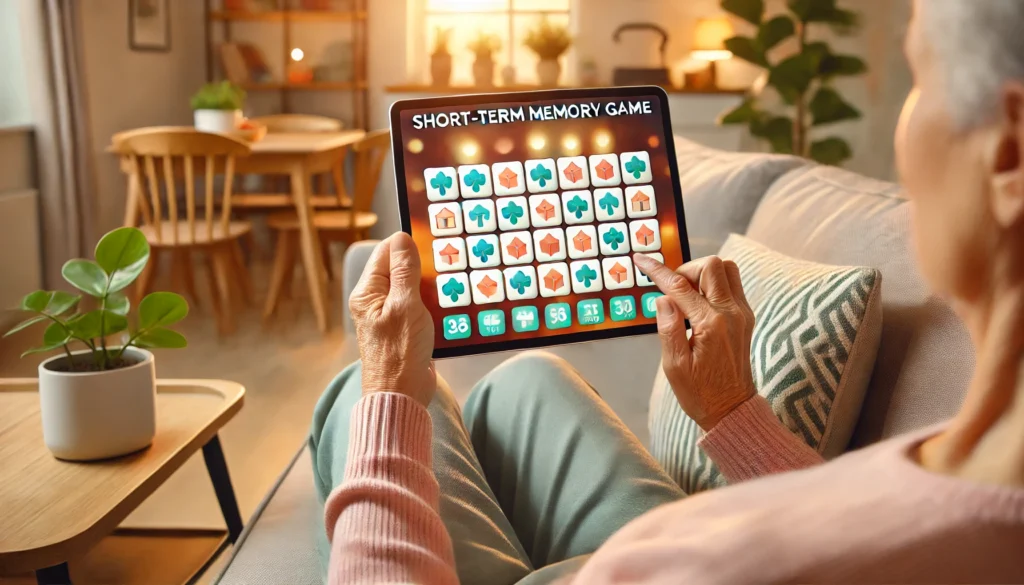Unlock the Full Power of Your Memory with Engaging Games
Memory serves as the foundation for countless aspects of human cognition, from learning new concepts to solving complex problems. Incorporating fun memory games into daily routines not only provides an enjoyable pastime but also offers an evidence-based method to enhance cognitive performance. These games, including memorization games for studying and short term memory games, effectively challenge the brain, strengthening its capacity for recall and focus.
Designed for individuals of all ages, brain games memory activities combine entertainment with targeted cognitive training. Whether you are a student preparing for exams, a professional looking to improve multitasking, or simply someone eager to keep your mind sharp, memory games offer a practical and rewarding solution. This article explores their science, benefits, and applications, providing you with actionable strategies to integrate these powerful tools into your daily life.
You may also like: How to Improve Working Memory: Top Short-Term Boosters and Practical Tips
The Science Behind Brain Games and Memory Enhancement
Short-term memory acts as the brain’s temporary holding system, processing information for immediate use. From recalling phone numbers to following directions, short-term memory plays a pivotal role in cognitive functioning. However, this system is finite, requiring consistent stimulation to remain sharp.
Brain games memory activities target this cognitive area by challenging the brain to process, store, and retrieve information quickly. Research shows that engaging in memory games strengthens neural connections and enhances neuroplasticity—the brain’s ability to adapt and reorganize itself. This process improves recall, decision-making, and focus, making memory games a critical tool for cognitive training.
Scientific studies further highlight the link between memory-enhancing games and improved learning outcomes. Activities such as memorization games for studying encourage active engagement with material, promoting deeper understanding and retention. By combining these techniques with structured study practices, individuals can significantly boost their academic and professional performance.
Benefits of Fun Memory Games for Cognitive Health
Enhancing Short-Term Recall
Short-term memory is essential for managing daily tasks and academic success. Engaging in short term memory games trains the brain to hold and manipulate information efficiently, translating to better performance in both personal and professional contexts. Regular practice with memory games improves information retention, enabling users to tackle challenges with confidence.
Promoting Active Learning
Memorization games for studying integrate fun with learning, encouraging users to interact actively with new material. This approach fosters a deeper understanding of concepts, making it easier to recall key details during exams or presentations. Games that involve categorization, association, and pattern recognition are particularly effective for promoting active learning.
Boosting Focus and Attention
Memory games demand sustained attention, requiring players to track details, recognize patterns, and make connections. These tasks help improve focus and reduce susceptibility to distractions, making brain games memory tools ideal for enhancing productivity. Over time, this heightened concentration extends to other areas of life, from work to personal pursuits.
Reducing Stress and Encouraging Relaxation
While memory games challenge the brain, they also provide a structured way to unwind. The immersive nature of fun memory games creates a sense of flow, reducing stress and promoting relaxation. The satisfaction of mastering challenging games boosts mood, fostering emotional resilience and well-being.
Supporting Lifelong Cognitive Health
Memory games are not just for children; they serve as valuable tools for adults and seniors aiming to maintain mental sharpness. Engaging regularly in short term memory games helps delay age-related cognitive decline and reduces the risk of neurodegenerative conditions. These activities build cognitive reserves, enabling the brain to adapt to challenges over time.

Types of Brain Games for Memory and Study Tools
Short Term Memory Games
Short-term memory games are designed to test and improve recall by presenting users with information they must remember within a limited timeframe. Games like matching pairs, number recall, and symbol association challenge players to retain details and retrieve them quickly. These activities are particularly effective for enhancing memory capacity and processing speed.
Memorization Games for Studying
Memorization games for studying combine cognitive training with educational content, making them ideal for learners of all ages. Activities such as flashcard challenges, mnemonic-based quizzes, and interactive word puzzles reinforce key concepts while training memory. By engaging in these games, students can approach their studies with greater confidence and retention.
Fun Memory Games for All Ages
From simple card-matching activities to complex puzzles, fun memory games cater to a broad audience. These games encourage creativity, problem-solving, and collaboration, making them enjoyable for individuals, families, and groups. Their universal appeal ensures that everyone can benefit from their cognitive-enhancing properties.
Brain Games Memory Tools
Brain games memory tools often integrate multiple cognitive challenges, including pattern recognition, multitasking, and logical reasoning. Apps and platforms offering these games provide customizable difficulty levels, progress tracking, and gamified rewards, enhancing user engagement and long-term commitment.
How to Incorporate Memory Games into Daily Routines
Establishing a Regular Practice
Consistency is key to maximizing the benefits of memory games. Dedicate specific times each day to engage in fun memory games, such as during a lunch break or as part of a nightly routine. Regular practice ensures sustained cognitive improvement and fosters a sense of accomplishment.
Pairing Games with Study Sessions
Integrating memorization games for studying into academic routines can amplify learning outcomes. Begin study sessions with a quick memory game to activate cognitive pathways, then transition into focused learning tasks. This approach primes the brain for information retention and problem-solving.
Combining Memory Games with Physical Activity
Physical movement enhances cognitive function, making it beneficial to combine brain games with activities like walking or yoga. For example, solving a brain games memory puzzle while on a treadmill engages both the body and mind, creating a holistic approach to mental fitness.
Engaging in Group Activities
Memory games offer an excellent opportunity for social interaction. Playing fun memory games with friends or family fosters collaboration and healthy competition, making cognitive training more enjoyable. Group activities also encourage consistency, ensuring regular engagement.
The Digital Revolution: Online Brain Games for Memory
The rise of digital platforms has revolutionized access to memory games, offering interactive and customizable experiences. Apps and websites featuring short term memory games provide a convenient way to engage in cognitive training from anywhere. These tools often include features like progress tracking, adaptive difficulty, and educational content, making them versatile resources for learners and professionals.
Popular platforms offering brain games memory tools include Lumosity, Elevate, and BrainHQ. These apps cater to various skill levels and preferences, ensuring that users can find activities that align with their goals. By leveraging technology, these platforms make cognitive training accessible to global audiences.
Long-Term Benefits of Memory Games on Brain Health
Delaying Cognitive Decline
Engaging in memory games regularly helps delay the onset of age-related cognitive decline. Activities like short term memory games stimulate the brain, creating neural reserves that protect against conditions like dementia and Alzheimer’s disease. These benefits highlight the importance of integrating memory games into lifelong routines.
Enhancing Learning and Retention
For students and professionals, memorization games for studying provide an edge in mastering complex material. By reinforcing key concepts through interactive challenges, these games improve long-term retention and application of knowledge, leading to academic and career success.
Promoting Emotional Well-Being
The sense of achievement gained from completing memory games fosters confidence and positivity. Regular engagement with fun memory games reduces stress, enhances mood, and creates a sense of purpose, contributing to overall mental health and happiness.

Embrace the Power of Memory Games for a Sharper Mind
Memory games are not just tools for cognitive improvement; they are gateways to a sharper, more resilient brain. By incorporating fun memory games, memorization games for studying, and short term memory games into your routine, you invest in lifelong learning and mental agility. These activities offer a unique combination of challenge and enjoyment, ensuring sustained engagement and progress.
Start exploring the wide range of brain games memory tools available today, from traditional puzzles to advanced digital platforms. Whether you aim to excel academically, boost productivity, or simply enjoy a mental workout, memory games provide the foundation for a healthier, more confident mind. Take the first step toward cognitive excellence and unlock your brain’s full potential.
Further Reading
SoM: Boost Your Brain: Working Memory Exercises for Adults
ND: 12 Fun Working Memory Games And Activities For Adults
LH: 25 Memory Exercises That Actually Help You Remember More
MND: 22 brain exercises to improve memory, cognition, and creativity
MMM: How to Improve Working Memory: 8 Exercises That Work
Important Note: The information contained in this article is for general informational purposes only, and should not be construed as health or medical advice, nor is it intended to diagnose, prevent, treat, or cure any disease or health condition. Before embarking on any diet, fitness regimen, or program of nutritional supplementation, it is advisable to consult your healthcare professional in order to determine its safety and probable efficacy in terms of your individual state of health.
Regarding Nutritional Supplements Or Other Non-Prescription Health Products: If any nutritional supplements or other non-prescription health products are mentioned in the foregoing article, any claims or statements made about them have not been evaluated by the U.S. Food and Drug Administration, and such nutritional supplements or other health products are not intended to diagnose, treat, cure, or prevent any disease.


